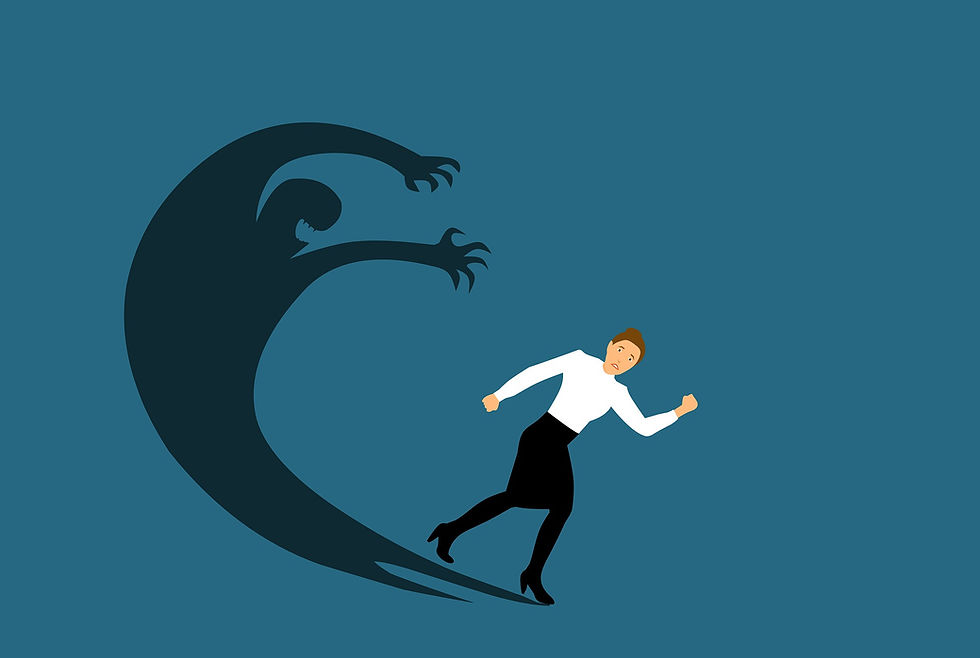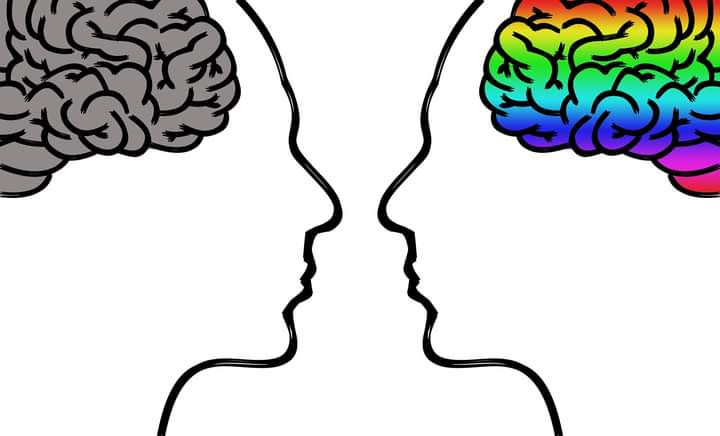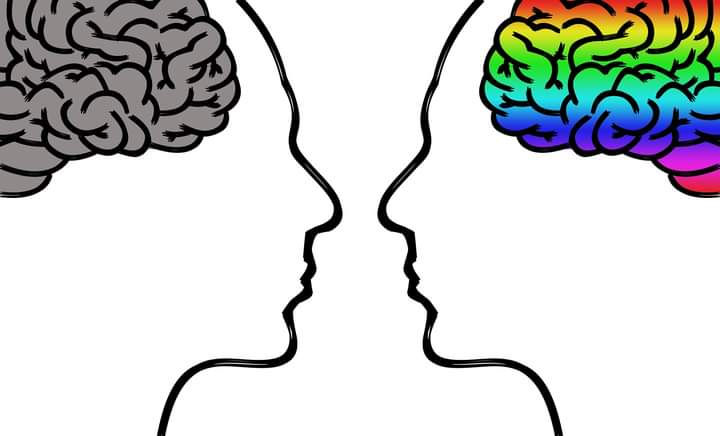Fear or phobia? What are the differences for the body and mind and how to treat them?
- Debora Wiseman
- 1 de nov. de 2022
- 3 min de leitura

What feeds fear?
Fear is created inside our minds and, as much as we try to avoid or ignore it, many times we can't end it. This is because the belief that fuels this feeling has not been changed.
Phobia is different from fear, despite having some similar characteristics. While one is a natural reaction of the body, the other is one that has reached disproportionate levels. Due to its intensity, it can cause suffering to the individual and reduce their good quality of life in their daily lives.
Fear or phobia? Main differences
When we feel fear, the body goes into “fight or flight” mode, preparing to respond to a threat or danger. There are several ways to feel it. For example, when we know of its destructive characteristic, we are afraid of losing something or someone. In this case, the feeling is fed by prior knowledge acquired through external sources.
There is also the fear that comes from trauma. If something happened in childhood, it can carry apprehension about what happened for a long time or for the rest of your life.
Another way to develop a fear is through learning from others. A child who sees his mother react fearfully to a cockroach, for example, may have the same fear.
Finally, there is the fear of the unknown. Typically, it is related, for example, to the future. This natural reaction is positive to some extent. Without it, people would likely put their lives at risk through dangerous acts. When the fear gains exaggerated proportions, however, it gives rise to the phobia.
So, this is characterized as an intense and terrifying fear, which appears in front of events, objects or animals considered non-threatening. Clinically, it is classified as an anxiety disorder.
Most common symptoms to identify fears and phobias:
* extreme anxiety;
* Tremors;
* Nausea;
* Dizziness;
* Intense sweat;
* Palpitation;
* Tachycardia (heart acceleration);
* Shortness of breath (or feeling of not being able to breathe);
* Weakness;
* Pallor;
* General malaise.
Emotional and Behavioral Symptoms
* Impending sense of death;
* Fear of losing control;
* Fear of heart attack, for no reason;
* Fear of vomiting in public or having a stomach ache, even if there is no physiological reason;
* Avoid driving or fear of facing traffic;
* Fear of open or closed places, of crowds, of going out alone;
* Feeling of being “going crazy”.
* Avoid specific places such as bakeries and restaurants, especially if there has already been an attack in these places;
What diseases can fear and phobia cause?
These situations can also cause physical symptoms, such as lack of sleep, tachycardia, headache, increased blood pressure and allergies and skin problems, which, over time, can turn into diseases such as hypertension and diabetes.
Most common techniques in the treatment of phobias
1. Exposure to what is feared;
2. Relaxation techniques;
Social skills training – which can take place in-session through behavioral rehearsals and/or out of session (homework). Training can reduce interpersonal confrontation anxiety in cases of social phobia.
3. Indicated Treatments
Both Fear and Phobia are complex conditions that can only be diagnosed by a qualified professional.
Treatment options include psychotherapy performed by a psychologist, medication (always prescribed by a doctor), and alternative therapy techniques.
Below are some valuable tips
* Learn to listen to your own emotions: Pay more attention to yourself, and then you will become aware that you need a change;
* Accept that the process is painful. Suffering is normal, but it doesn't last forever. The recovery process takes some time and needs faith, strength and a lot of patience;
* Accept that there are ups and downs, and don't forget that there are countless ways to overcome bad days, they are fleeting;
* Do not repress emotions, talk about what you are feeling with people you trust, or seek therapeutic support;
* Fragment the problems, that is, make progressive decisions: when we take control and start to make decisions, no matter how small. We get stronger and our brain goes into problem-solving mode;
* The help and guidance of competent doctors and therapists is necessary and essential.
IMPORTANT: We are Holistic Therapists and our treatment is alternative. Even with satisfactory results, it is essential to emphasize that only duly qualified doctors can diagnose diseases, indicate treatments and prescribe medication.
All the best!
See you next week
Shalom!
Debora and Daniel Wiseman





Comentários